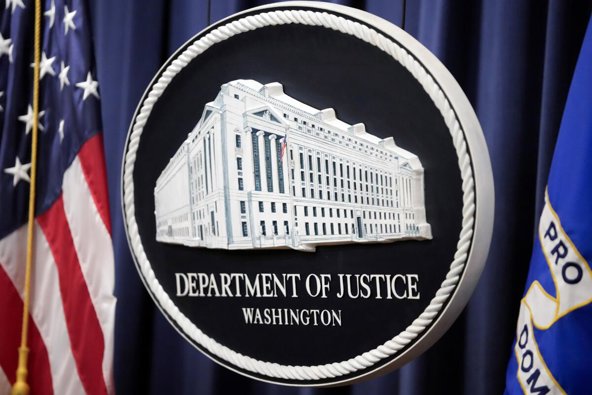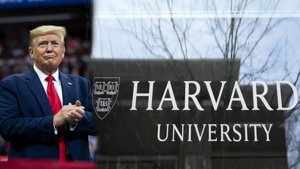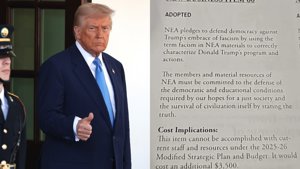
DOJ Sues Kentucky Over In-State Tuition Policy
DOJ sues Kentucky, alleging its in-state tuition policy for illegal immigrants discriminates against U.S. citizens.
Justice Department Files Suit Against Kentucky Tuition Policy
The U.S. Department of Justice has filed a federal lawsuit against Kentucky, challenging a state policy that grants in-state college tuition rates to illegal immigrants residing in the state. The suit, filed Tuesday in the Eastern District federal court, claims the policy “unconstitutionally discriminates against U.S. citizens not afforded the same privilege,” particularly those from out of state.
Attorney General Pam Bondi, announcing the lawsuit, stated, “No state can be allowed to treat Americans like second-class citizens in their own country by offering financial benefits to illegal aliens.” Bondi also noted that the Justice Department had recently prevailed in a similar case in Texas, expressing confidence about the outcome in Kentucky. “We look forward to fighting in Kentucky to protect the rights of American citizens,” she said.
The lawsuit, U.S. v. Andrew Beshear, targets the policy’s enforcement in public universities, raising questions about fairness in tuition practices and the rights of American citizens. Republicans in Kentucky’s state legislature quickly praised Bondi and President Donald Trump for their stance, blaming Democratic Governor Andy Beshear for not taking action to change the regulation.
State Officials Respond as Legal Battle Unfolds
Governor Beshear’s office, however, distanced itself from the controversy. Spokesperson Crystal Staley emphasized that the governor “had no role in creating the policy” and explained that it is overseen by the Kentucky Council on Postsecondary Education (KCPE), an independent agency. “The governor has no authority to alter CPE’s regulations and should not be a party to the lawsuit,” Staley stated, adding that the regulation predates Beshear’s term and was issued before 2010.
Melissa Young, a spokesperson for the KCPE, confirmed that the agency had only just learned of the lawsuit and was not yet prepared to comment on specifics. The general counsel’s office is reviewing relevant regulations before issuing a formal statement, she said.
Republicans, who hold the majority in the state legislature, have criticized Beshear’s administration, arguing that the current policy constitutes “unconstitutional discrimination against U.S. citizens.” State Representative T.J. Roberts of Burlington, who authored House Bill 352 to end the practice of granting residency status to illegal immigrants for tuition purposes, praised the Justice Department’s legal challenge. “The Beshear administration has been given the chance to right this wrong—first when I introduced legislation to shed light on the issue, and again following a successful legal challenge in Texas,” Roberts asserted. “Unfortunately, the governor has chosen to ignore those opportunities and instead continues to defy the Constitution, manipulate the regulatory process to advance his own agenda, and misuse the powers of his office to elevate his national political ambitions.”
As legal proceedings begin, the KCPE is conducting an internal review, while the state’s political divide over immigration and educational equity comes sharply into focus. The outcome of this case may have significant implications for similar policies nationwide and could set a new precedent for how states define tuition eligibility in public education.






